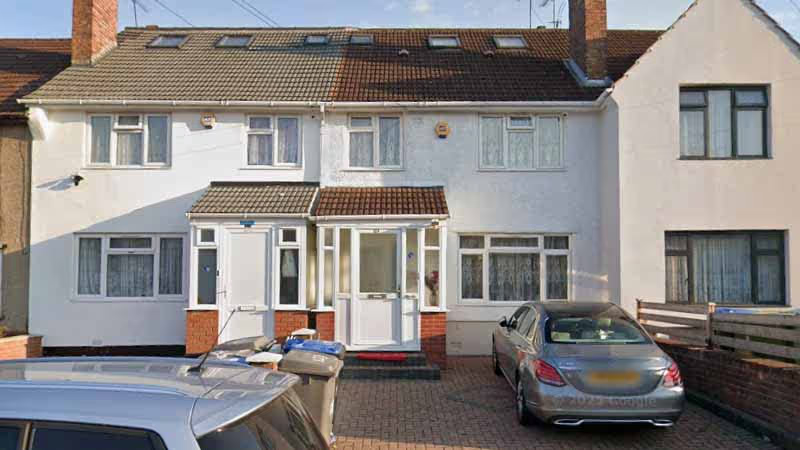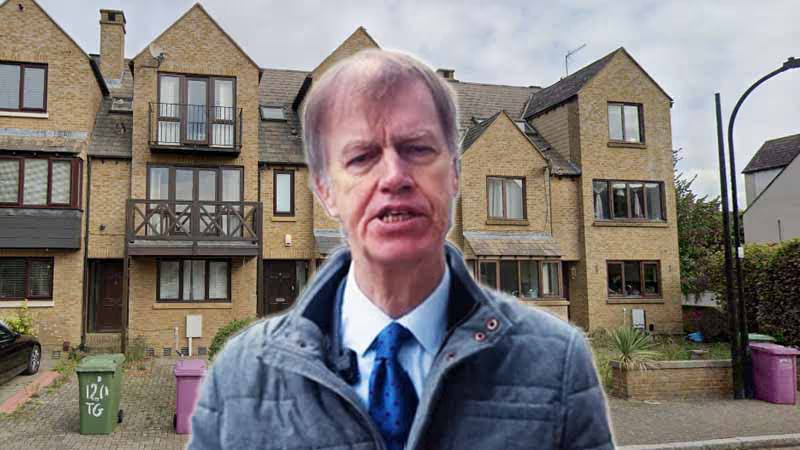Home Reit, an investment trust landlord, was set-up to house Britain's homeless. But the company has found itself running into increasing difficulties, with tenants' complaints and failed rent payments, a negative short-seller's report, a financial squeeze with falling stock prices and alleged criminal activities.
Home Reit was established around three years ago as a pioneer London stock exchange listed property fund (investment trust) specialising in providing properties to charities tackling the UK's homeless problem - people living on Britain's streets.
With ambitious aims, broadly in-line with Government polity, its stated target was to raise a fund worth �1bn which would provide enough rental housing to take 10,000 people off the streets.
Home REIT (HOME) appeared to offer rather an attractive proposition for its investors. This real estate investment trust was to purchase residential properties and lease them at affordable rents to charities and public bodies ('the tenants'�), providing accommodation for the homeless. The rent would be covered by housing benefits paid directly to the tenants, in other words a fully government-backed investment offering safety of capital. It was also expected to pay a steady income of a 5 per cent dividend to boot.
The Reit with a social purpose, offering attractive shareholder returns, was too tempting an investment for some, including some large institutions, but did they understand the risks?
So far things have not worked out quite that way. The trust company has lurched from one crisis to the next, with rent arrears and scandal, and it has been the victim of a report questioning the company's business model. This is a short seller's report, short sellers make money by betting on falls in a company's share price.
Stock market listing
Launched on the London Stock Exchange in October 2020, Home Reit managed to raise �240 million in what turned out to be the largest initial public offering of any investment trust in that year. The investment trust company went on to quickly source and invest the proceeds into around 500 multi-occupation properties, all for homeless people around the United Kingdom.
In September 2021 a further �350 million was raised and used to buy another 366 properties. Come 2022 yet another �150 million was raised through investors to purchase a further addition of 216 properties; thus making a portfolio of over 1,000 sheltered accommodation properties, which were let out to 126 charities, housing associations and local authorities.
Tenant complaints
Trouble for the Reit started initially with complaints about living conditions by its tenants and when at the end of 2022 a group of shareholders claimed the company had misled the investment market. They claimed that instead of catering purely for the homeless, the Reit was letting some of the properties to tenants who are not vulnerable and would not be eligible for government assistance - Housing Benefit payments.
The company vigorously denied the allegations but subsequently admitted that it did not have sufficient information to identify how much of its income came from Housing Benefit payments and how much came from other rent payments.
The Trust's problems got much worse when more of it's tenants complained about the living conditions in some of the properties, coming up with long lists of complaints ranging from roof leaks to black mould, and withholding rent payments because of this. One charity said it owed almost �1m in rent and predicted the bill would just keep growing as long as the complaints were not dealt with.
A housing charity involved said that the Reit's model was not working for its tenants. The charity otherwise manages more than 400 homes with in excess of 1,000 beds throughout the UK and stated that, 'We've got properties that are unfit for people to live in and we've had to shut some of them down because they are just not right for anybody, let alone a vulnerable person.'�
'We've been promised an amount of money that hasn't been delivered. We pay for refurbishments as best as we can, but we can't pay for everything. Tenants are living in substandard accommodation,'� said the charity.
Both private investors and some leading city institutions such as M&G and Scottish Widows invested client's funds into Home Reit, largely because the business model has worked in other countries and there was a nice social theme to the model that promised to meet the needs of multiple stakeholders; central government, charities, housing associations, local government and the homeless themselves.
Home Reit has responded to criticism from it's tenants, telling The Guardian Newspaper that:
'Home Reit is shocked to learn of the state of disrepair at [one particular] ...property. When Home Reit acquired the property it was in fair condition although the building survey identified some areas that required addressing as part of the agreed refurbishment, and the company understood there was a plan in place by the tenant with the developer to undertake this.
'Home Reit has been trying to gain access to the property since August 2022 as part of our regular inspections and this has not been given. Now we have been made aware we are trying to find a solution to move the resident out of the property as soon as possible.'�
The Short-seller's report
Adding to Home Reit's difficulties was the publication of a short-seller report which has attacked the company. But the directors have stated that the report is 'inaccurate and misleading'� and 'based on mistaken assumptions, misinformed comments, and disputable allegations'�.
Home Reit's auditors were reviewing Viceroy Research's (the reports authors) allegations that many of the tenants Home Reit houses 'cannot afford rent, have not been paying rent, are in administration, are run by bad actors, or simply do not provide social housing services'�.
Home Reit in turn said it would be publishing 'a full and detailed response demonstrating the factual inaccuracies and selective use of information.'�
The Viceroy Research's report alleges that several of the trust's largest tenants don't appear to be paying any rent and that many of the charities using the trust's services don't have the ability to service the leases on a long-term basis.
The short-seller also claims that many of Home Reit's properties were bought at an inflated prices thereby artificially inflating its net asset value (NAV) and with it a management fee paid to the fund manager Alvarium.
Directors and shareholders
One non-executive director at Home Reit is Peter Cardwell, talkRadio's political editor and a former special adviser to Conservative government ministers.
The trust's shares were suspended at the start of this year after the company missed a deadline to publish its annual accounts, following which its accountants BDO started 'enhanced audit procedures'� would be undertaken. The directors have also faced legal action from shareholders who were angered after the share price fell by nearly 70 per cent.
The latest news on Home Reit is that Edinburgh-based RM Funds, with the backing of major shareholders, is proposing to try and convince shareholders that it could take over as investment adviser for the sheltered housing group after the previous adviser, Alvarium, cut ties the trust as it became embroiled in the series of escalating crises.
One professional source with inside knowledge of the matter has stated that if the trust's board does not take up RM's offer there is a risk of a 'fire sale' of Home Reit's portfolio that would entail the eviction of many vulnerable residents.
As of last week Home Reit said it was seeking to extend its deadline for takeover offers and to consider other submissions for a new investment advisor.















.avif)
.avif)


















Comments